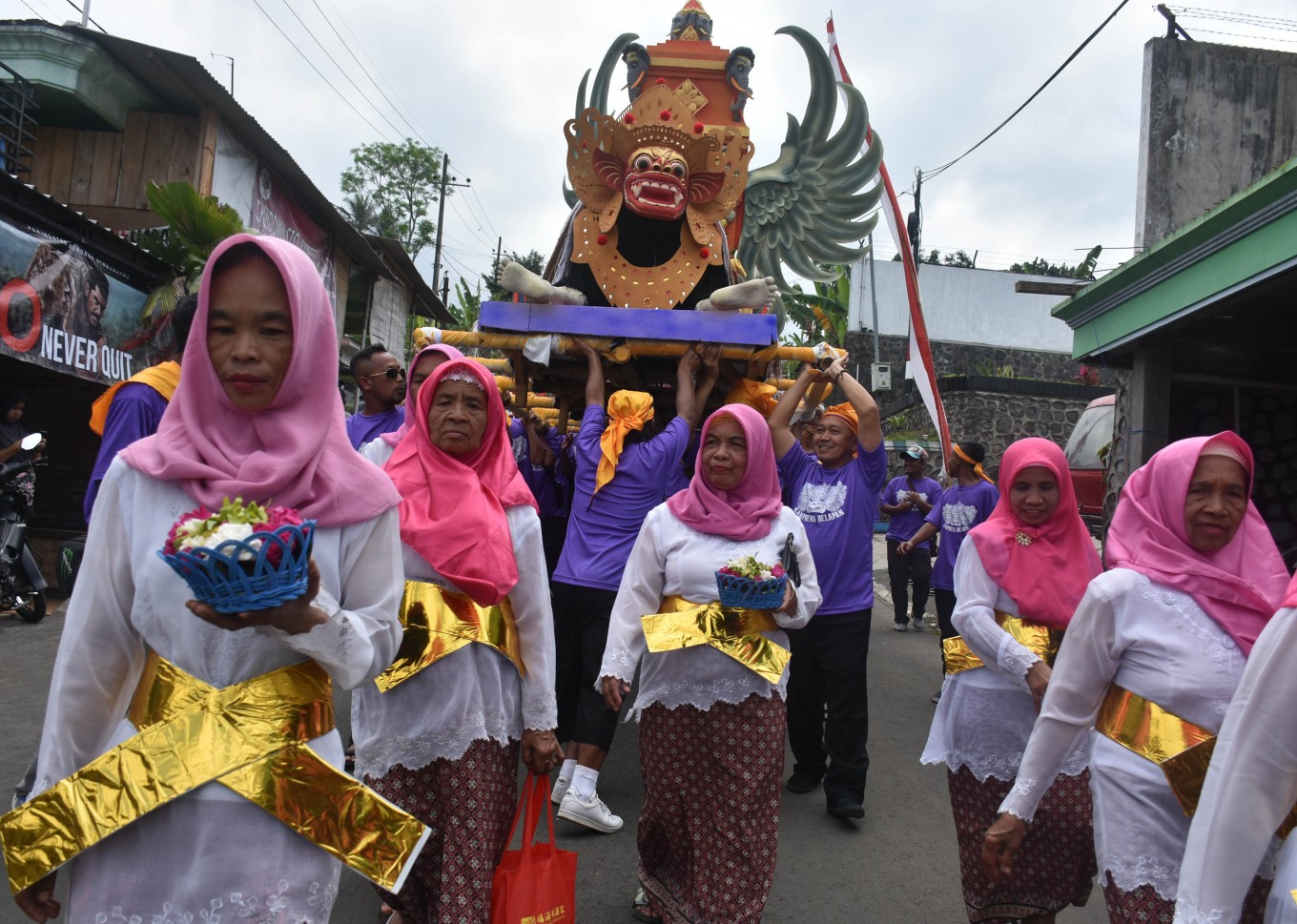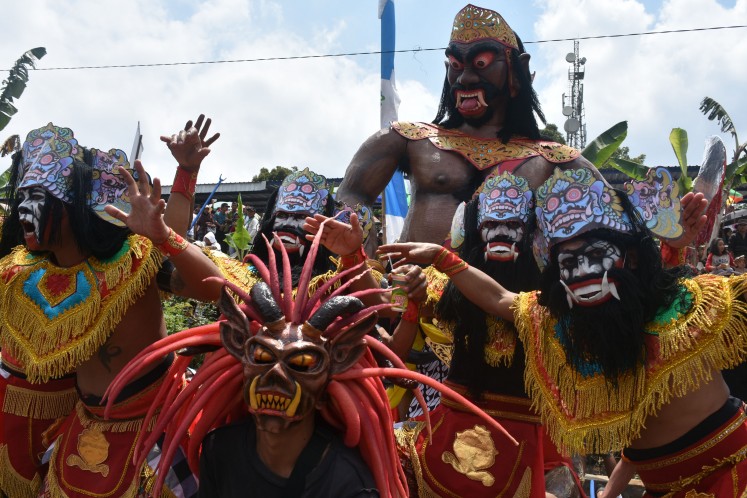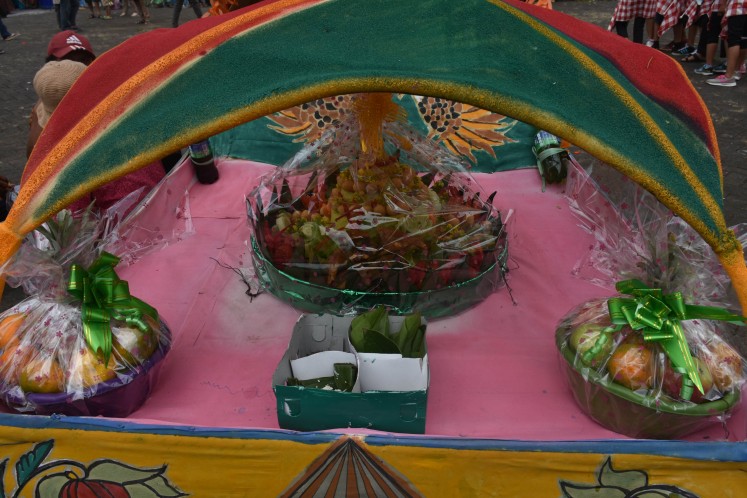Popular Reads
Top Results
Can't find what you're looking for?
View all search resultsPopular Reads
Top Results
Can't find what you're looking for?
View all search resultsJavanese New Year parade in Malang village celebrates religious diversity
The 1 Suro offering parade is conducted by the locals to show their gratitude to God for their prosperity, as well as to commemorate the death of village founder Eyang Djugo, who died at 154 years of age.
Change text size
Gift Premium Articles
to Anyone
T
housands of people could be seen attending the offering and cultural parade at Mount Kawi Pasarean in Wonosari village, Malang, East Java, on Tuesday, known as the first day of Sura (1 Suro), or the eve of the Javanese New Year.
The parade was joined by villagers who carried jolen or ogoh-ogoh miniatures and offerings along the main street to the grave of the village’s founder Kanjeng Kyai Zakaria.
The event is held every 1 Suro on the Javanese calendar or the first day of Muharram on the Islamic calendar.
The event is held every 1 Suro on the Javanese calendar or the first day of Muharram on the Islamic calendar. (JP/Aman Rochman)
Wonosari village is home to mostly Muslim farmers, as well as a smaller number of Hindus, Christians and people of other beliefs.
Mt. Kawi Pesarean is the location of Kanjeng Kyai “Eyang Djoego” Zakaria's grave. He was said to be one of the bodyguards of Prince Diponegoro during his fight against Dutch occupation. Following his duty, Eyang Djoego went to Malang and founded Wonosari village in the Mt. Kawi area.
Read also: Thousands celebrate Javanese New Year in Surakarta
The place, around 53 kilometers from the city of Malang, is known as a spiritual pilgrimage site for those who seek fortune, security and success among the Javanese and Indonesians of Chinese descent. Pilgrims usually arrive on Pahing on Monday night, Legi on Friday night and 1 Suro day.
Village head Kuswanto said the offering parade was conducted by the locals to show their gratitude to God for their prosperity, as well as to commemorate the death of Eyang Djugo, who died at 154 years of age.
“After 2004, we decided to add ogoh-ogoh and a local art parade to increase tourist visits,” said Kuswanto, adding that all villagers of different beliefs collected the funds to create the ogoh-ogoh and hold the event.
Visitors are not allowed to wear shorts nor take pictures or video inside the cemetery during the event.
Fifty-six-year-old Susi Erliana, a women of Chinese descent from Singkawang in West Kalimantan, said she came to Mt. Kawi to pray to God for prosperity, a healthy life and success in the coming year. “Every year we come here as a family. We [usually] visit tourist destinations around Malang during our stay,” she said.
The cultural parade has been included on the Malang Tourism Agency’s tourism calendar and serves as an annual event to attract tourists to the city. (kes)













